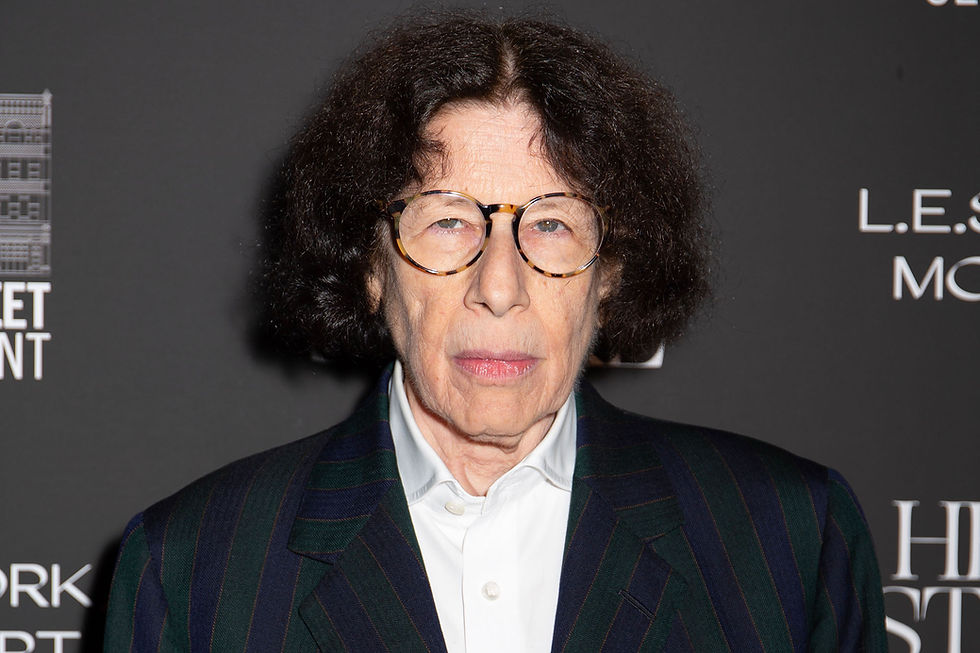Why Justice Ginsburg Matters in the UK
- Minyan Team

- Sep 29, 2020
- 4 min read

By Dr. Karen Widess
Much of what I will say I have stolen from Nina Totenberg of U.S. National Public Radio, who covered the U.S. Supreme Court, and was also a friend of Justice Ginsburg’s for 30 years.
First I’d like to say a bit about why Justice Ginsburg means so much to U.S. women, and then why we are discussing her today, in Britain, where most of us are decidedly not U.S. women, and how her example is universal and deeply Jewish.
While Ruth Bader Ginsburg will be remembered as a historic figure for many reasons, she was instrumental in changing the world for U.S. women. Even if she had never become a judge, her impact would have been enormous.
When she began to teach and advocate in the early 1960s, women were treated differently from men, by law. Hundreds of laws restricted what women could do, barring them from jobs, rights and even from jury service, as if they were not considered as full human beings.
Justice Ginsburg fought gender discrimination in her own life when she was denied opportunities solely due to her sex.
When she was admitted to Harvard Law School, where she was one of only nine women in a class of more than 500, the dean asked her why she was taking up a place that "should go to a man." Later she transferred to Columbia University Law School in New York City, where she graduated first in her class. Despite her academic achievements, law firms at that time were closed to women, and though she was recommended for a Supreme Court clerkship, she wasn't even interviewed.
Today, she lies in state in the U.S. Capitol building, the first woman ever to do so.
In 1963, Justice Ginsburg became a teacher at Rutgers Law School in New Jersey, where she began her work fighting gender discrimination, going about it in subtle and often clever ways. Knowing that she had to persuade male, establishment-oriented judges, she often picked male plaintiffs, and chose cases that illustrated how discrimination against women harmed men and children.
She became famous for her quips, and a particularly appropriate one was: “Fight for the things that you care about. But do it in a way that will lead others to join you.”
In 1971, she won a case before the Supreme Court concerning whether a state could automatically prefer men over women as executors of estates. It was the first time the all-male Supreme Court had struck down a state law because it discriminated based on gender.
In 1980, President Jimmy Carter named Ginsburg to the U.S. Court of Appeals, and in 1993, President Bill Clinton nominated her to the U.S. Supreme Court, the second woman appointed to the position.
There are nine justices on the U.S. Supreme Court. In perhaps her most famous quote, Ginsburg said: "When I'm sometimes asked 'When will there be enough (women on the Supreme Court)?', my answer is: 'When there are nine.' People are shocked. But there'd been nine men, and nobody's ever raised a question about that."
By the time she was in her 80s, she had become something of a rock star and was known as the "Notorious RBG." You may have seen pictures of little girls dressed as her for Halloween, wearing her famous lace collars over judicial robes. My favourite photo since her death was that of the Los Angeles Lakers basketball team on Monday wearing a stunning variety of delicate white lace collars in tribute.
Justice Ginsburg was a woman who defied stereotypes. Though a liberal, she and the court's conservative icon, Antonin Scalia, were the closest of friends. As Justice Ginsburg said: "You can disagree without being disagreeable."
She was not shy about disagreeing. In more recent years, as the U.S. Supreme Court has moved to the right, her dissenting opinions became fiercer and more eloquent. She viewed her dissents as a chance to persuade a future court. "Some of my favorite opinions are dissenting opinions," Ginsburg told NPR. "I will not live to see what becomes of them, but I remain hopeful."
So, why should a congregation in England, most of whom are not U.S. female lawyers, or U.S. women, or even lawyers, stop to consider the life of Ruth Bader Ginsburg?
I believe that her lifelong dedication to the struggle for justice and equality is an example to us all. That she inspires us to carry on the good fight with elegance and grace, and shows how we can repair the world (Tikkun Olam) without adopting the demeanour and tactics of those who oppose us: reactionary forces, those resistant to change, and those clinging to undeserved privilege.
And while it was my intention to refrain from politics in talking about her achievements, there is no doubt that her death is a tragedy for the U.S. people, and she was well aware of what may happen in the coming weeks. It will be bare-knuckle politics, writ large, on the stage of a presidential election. It will be a fight which Justice Ginsburg had hoped to avoid, telling Justice John Paul Stevens shortly before his death that she hoped to serve as long as he did — until age 90.
She only made it to 87, and we are both inspired by her example and frightened of what could come next.




Comments